

BA IN ECONOMICS
About the Department
The economics department of the college is one of the oldest departments created in the same year as the college was founded. Since its inception, the Department of Economics has drawn a sizable number of students, and Late S.N.Das, the founder principal of the college had taken a major role in this attractiveness by taking a routine class as he belonged to economics discipline. The department always encourage students to be well versed and familiar with modern teaching learning aids. Students are motivated to contribute to societal enrichment and environmentally friendly behaviour.
Department involves in following activities:
Participation in Blood donation camp
NSS, sports activities
Essay writing & Debate competitions
Involvement in group discussions & seminars
Presentation by students on Union and State budgets every year
Students edit and publish wall Magazine (Economic Mirror) periodically.
Educational tour and visit to various research organizations and educational institutions in the country every year
Vision:
The department’s endeavour is toward creating a society founded on quality education, the quest for perfection, a secular outlook and yearning for moral values.
Mission:
Mission of the department is to produce an environment that
I. Produce graduate which are competitive globally.
II. Support innate potentiality and all-round development of students
III. Enables the students to take part in Nation Building.
IV. Encourage the students to contribute to the advancement of humanity.
V. Disseminate information beyond academics.
VI. Gives students a sense of the cutting -edge education and foster environmental awareness.
Mission:
Mission of the department is to produce an environment that
I. Produce graduate which are competitive globally.
II. Support innate potentiality and all-round development of students
III. Enables the students to take part in Nation Building.
IV. Encourage the students to contribute to the advancement of humanity.
V. Disseminate information beyond academics.
VI. Gives students a sense of the cutting -edge education and foster environmental awareness.
Program Outcome
“Program Outcomes are statements that describe what students are expected to know and able to perform or attain by the time of graduation. These relate to the skills, knowledge, and behavior that students acquire through the programme.” (EAC Manual 2007). Program outcome may be set as follows:
• Knowledge of the subject
• Ability to analyze problems
• Designing new theories or formulating new ideas
• Investigating into real life issues
• Application of modern tools and theories
• Application of knowledge for the development of the society
• Environmental sustainability
• Human values and Ethics
• Individuality and team work/personality development
• Communication Skill
• Life Long Learning/Life skill education
• Plus a minimum of two and a maximum of 4 Program outcomes (These are the Program Specific Outcomes)
Accordingly, we can define the program outcomes of a program as under:
Name of the Program: B.A./ B.Sc in Economics
Table 3: Program Outcome of B.A./ B.Sc in Economics
POs Description
PO 1 Develop competence and adaptability of the students to face global competition
PO2 Ability to undertake problem identification, formulation and solution;
PO3 Demonstrate the ability to act with informed awareness of concerns, care about equity in national development, and engage in civic life through volunteering.
PO4 Contributing towards formation of human values and ethics
understanding of professional and ethical responsibilities and commitment to them;
PO5 Providing with the knowledge of environmental sustainability
PO6 Develop the capacity for independent, lifelong learning in the context of socio-technical transformations.
PO7 Develop effective communication skill and personality development
PO8 Contributing toward social capital formation
PO9 Develop critical thinking power of the student to handle real life problems
PO10 Development of leadership quality
Program Specific Outcomes
• At least two and a maximum of four (Decided by the Department)
Program Specific Outcome
• Development of Entrepreneurial skill among students
• Knowledge of economic and best use of resources.
• Promotion of self study which enhance the ability to observe accurately and objectively.
In order to identify course outcome, course objectives are addressed keeping in mind different levels of Bloom’s Taxonomy. Thus course outcomes are as under:
Paper: ECO-HC-1016: Introductory Microeconomics. The course outcomes are as follows:
CO1 Remember Definition of economics, Economic theories, conditions for optimization,
CO2 Understand Applications of economic laws, market structures
CO3 Apply To enable students to develop real life economic model
CO4 Analyze Use of theoretical knowledge to analyse consumers /producers behaviour
CO5 Evaluate Select appropriate technique for project evaluation/BCA/Shut down costs etc
CO6 Create Develop new models, Convert real life problems to some economic models and accordingly solve it.
ECO-HC-1026: MATHEMATICAL METHODS IN ECONOMICS–I
CO1 This paper is expected to familiarize the students with certain concepts of mathematics like Function, Calculus, Differential and Difference equation, Matrix and Determinant, etc. which are of enormous use in almost all branches of economics in the changed scenario today.
CO2 This will remove unnecessary panic about mathematics and build up mathematical preparation of the students.
ECO-HC-2016: Introductory Macro Economics
CO1 The main objectives of this course is to introduce the students to the basic concept of Macro economics.
CO2 The students will be able to know the preliminary concept of National Income and related aggregate associated with it, methods of National Income calculation.
CO3 Students will be able to explore the concept of supply of money and demand for money, inflation and its social cost as well as different tools of monetary policy.
CO4 This course will also help the students to know about the different between open economy and closed economy and IS-LM models.
ECO-HC-2026: MATHEMATICAL METHODS IN ECONOMICS – II
CO1 This paper is expected to help students in acquiring mathematical skills they need in order to read the less technical literature and so to function properly as economists or as business analysts in the contemporary world.
CO2 This will provide a better formal intuitive insight into the economic problems and promote their understanding in a systematic and consistent form.
ECO-HC-3016: INTERMEDIATE MICROECONOMICS
CO1 The course is prepared to provide a sound training in microeconomic theory to formally analyze the behavior of individual agents.
CO2 As students are introduced to quantitative techniques in the previous semesters, the course utilizes the mathematical tools to facilitate understanding of the basic concepts.
CO3 This course highlights on the behaviour of the consumer and the producer and also covers the behaviour of a competitive firm.
ECO-HC-3026: INTERMEDIATE MACROECONOMICS – I
CO1 This course enables students to grasps the basic concepts of Aggregate demand and aggregate Supply along with its practical application.
CO2 The contents in the course cover topics like Inflation, Unemployment and Expectations, which bears a great importance in understanding the macroeconomic scenario of an economy.
CO3 The course exposes the students with the Short run Open economy models and its application in the sphere of International trading sphere.
ECO-HC-3036: STATISTICAL METHODS FOR ECONOMICS
CO1 This paper is expected to introduce the students with the subject Statistics was once known as the science of kings, but now it has gained ground in almost every branch of human knowledge.
CO2 Statistics and its application (covered herein) would enable students to comprehend statistical techniques that can be applied to various economic problems to find solutions.
CO3 Going through the units like probability and probability distribution, students would be made equipped for entering into studying hypothesis testing and inference drawing
ECO-SE-3014: Data collection and Presentation
CO1 It will enable students to understand what is data and how numerous data and its uses.
CO2 It also helps to understand how to present data not manually but also with the use of softwares like Excel, SPSS etc.
CO3 The paper enables to apply fundamental tools for project preparation and how it could be carried on for proper analysis.
CO4 As research and extensions are the integrals of higher education, the paper helps students to understand basics of statistics and its application in research.
ECO-HG-3016: Principles of Macroeconomics I
CO1 This course introduces students to the basic concepts in Macroeconomics.
Macroeconomics deals with the aggregate economy.
CO2 In this course the students are introduced to the definition, measurement of the macroeconomic variables like GDP, consumption, savings, investment and balance of payments.
CO3 The course also discusses various theories of determining GDP in the short run.
ECO-HC-4016: Intermediate Macro Economics 2
CO1 Knowledge of different growth models and technological progress.
CO2 Use the micro-foundations in the macro economics, different consumption hypothesis, investment and demand for money.
CO3 Application of monetary policy and fiscal policy instruments in solving real economic problems like inflation and deflation.
CO4 Concept about classical, neo-classical, Keynesian and neo-keynesian thoughts.
ECO-HC-4026: INTERMEDIATE MACROECONOMICS – II
CO1 The course is designed to make students learn about economic growth with help of various theories.
CO2 In this course, the students are introduced to the concepts and theories of consumption and Investment along with the concept of technical progress.
CO3 It also provides the micro-foundations to the various aggregative concepts used in the previous course.
ECO-HC-4036 Introductory Econometrics
CO1 This paper helps to understand the applied aspects of economic theories with the uses of mathematical statistics and mathematical economics.
CO2 It enables the readers to understand how economic phenomenon is measured and how these can be validated in real world framework.
CO3 Enables prediction and estimation of unknown economic phenomena with known information through regression analysis.
CO4 This paper also highlights various aspects of econometric models under presupposed assumptions and under conditions of violation of assumptions and its consequences and corrections.
ECO-SE-4014: Data Analysis. The course outcome is as follows:
CO1The course enables students to familiar with basic statistical software viz. Excel, SPSS etc.
CO2 Besides manual calculations, through this course students will learn about practical calculations by the use of software.
CO3 Course will introduce students with important data sources and will be trained to use statistical software.
ECO-HG-4016: Principles of Macroeconomics–II
CO1 It analyses various theories of determination of National Income in greater detail. It also introduces students to concept of inflation, its relationship with unemployment and some basic concepts in an open economy.
CO2 This paper helps the student to know the theoretical concept and about application of IS-LM curve in policy making of government.
CO3 This helps the student to know the concept of inflation and the link of it with unemployment during short and long run period of time.
CO4 This part of paper helps the student to understand the conceptual knowledge of balance of payment and calculation of it.
ECO-HC-5016: INDIAN ECONOMY-I
CO1 This course reviews major trends in economic indicators and policy debates in India in the post-Independence period, with particular emphasis on paradigm shifts and turning points. Given the rapid changes taking place in India, the reading list will have to be updated annually.
CO2 This paper deals with topics like demographic trends and issues; education; health and malnutrition
CO3 Students through this paper will get acquaintance with trends and policies in poverty; inequality and unemployment.
CO4 This part of paper impart the knowledge of international comparison of Indian economy with China, Pakistan, Bangladesh, Sri Lanka, Nepal and Vietnam
ECO-HC-5026: Development Econimics-1
CO1 It helps to know about the alternative conceptions of development and their justification.
CO2 The course proceeds to aggregate models of growth and cross-national comparisions of the growth experience that can help evaluate these models.
CO3 The course designed in a way which helps to know about the concept of poverty and inequality and connections between growth and inequalities are explored.
CO4 It enables students to know about the political institutions to growth, the role of the state in economic development and the informational and incentive problems that effect state governance.
ECO-HE-5026: MONEY AND FINANCIAL MARKETS
CO1 This course acquaints students to the theory and functioning of the monetary and financial aspects of the economy.
CO2 The content highlights the organization, structure and role of financial markets and institutions.
CO3 The paper also discusses about interest rates, monetary management and instruments of monetary control.
CO4 The course exposes students with the Financial and banking sector reforms and monetary policy with special reference to Indian Economy.
ECO-HE-5036: PUBLIC FINANCE
CO1 This course is a non-technical overview of government finances with special reference to India
CO2 It will look into the efficiency and equity aspects of taxation of the centre, states and the local governments and the issues of fiscal federalism and decentralization in India.
CO3 The course will be useful for students aiming towards careers in the government sector, policy analysis, business and journalism.
ECO-HC-6016: INDIAN ECONOMY-II
CO1 This course examines sector-specific polices and their impact in shaping trends in key economic indicators in India.
CO2 It highlights major policy debates and evaluates the Indian empirical evidence.
CO3 It gives an idea about the rapid changes taking place in the country.
CO4 It helps the student to know the concept of fiscal Policy, trade and investment policy, financial and monetary policies and labour regulation of India.
CO5 This part of paper deals with the policies and performances of Indian economy and its growth, productivity, agrarian structure and technology, capital formation, trade, pricing and procurement.
ECO-HC-6026: Development Economics-II
CO1 It enables students to know about the demographic concept and their evaluation during the process of development.
CO2 It discusses about the structure of markets and the problems of enforcement experienced in poor countries.
CO3 The course enables students to study about the governance of community and international organizations.
CO4 It discusses about the environment and sustainable development.
CO5 The course reflects on the role of globalization and increased international dependence on the process of development.
ECO-HE-6016: Environmental Economics
CO1 Course designed in a way to give an idea to students that how environmental problems are caused directly and indirectly by economic activities.
CO2 It will enable students to understand how various economic principles are applied to environmental questions and their management through various economic institutions, economic incentives and other instruments and policies..
CO3 Economic implications of Environmental policy are also addressed as well as valuation of environmental quality.
ECO-HE-6026: International Economics
CO1 Introduction about international trade and its scope as well as an overview of world trade.
CO2 Develops a systematic exposition of models of international trade and they provides the basis of international trade and its consequences.
CO3 Concept of tariff and quota and their effects. A comparative study between force trade and protection.
CO4 Concept of different types of exchange rates, international monetary system, gold standard etc.
CO5 An analytical account of the causes and consequences of the rapid expansion of international financial flows and financial crisis.
Continuous Internal Evaluation (CIE): As an affiliated institution of Gauhati University, evaluation norms of the university are followed by the departments. The university has adopted major reform in evaluation by introducing Credit based grading system from the academic year 2016-17 and the institute has adopted the same. The college has adopted a method of assessing the academic performance of the students on a continuous basis. Continuous assessment in theory subjects:
There shall be 20% marks for internal assessment and 80% marks for end semester examinations.
For internal assessment, the department stipulated the following components as per the guideline of the parent university:
i) Sessional Examinations
ii) Home Assignments/Seminar/Group Discussion
iii) Class Attendance
iv) Laboratory Practical and field work wherever necessary.
The department follows the University\'s guidelines for the aforementioned fixed components, but in addition, as a reformative measure to strengthen the internal assessment and evaluation process, it has established or added the following new components/parameters at its own level.
i) MCQ based Exams
ii) Quiz programme on the respective course
iii) Class tests/on the-spot tests and oral tests.
iv) Viva-voce for Project works.
v) Micro Teaching
vi) Self-assessment by group of students (one group assessing the performance of another group).
vi) Setting of sessional examination question papers following the pattern of end semester examination to the extent possible.
| Class | Session | No. of Students |
|---|---|---|
| TDC 3rd Year (5th and 6th sem) Major | 2023-2024 | 46 |
| TDC 2nd Year (3rd and 4th sem) Major | 2023-2024 | 55 |
| TDC 1st Year (1st and 2nd sem) Major | 2023-2024 | 49 |
| TDC 3rd Year (5th and 6th sem) Major | 2022-2023 | 43 |
| TDC 2nd Year (3rd and 4th sem) Major | 2022-2023 | 46 |
| TDC 1st Year (1st and 2nd sem) Major | 2022-2023 | 62 |
| TDC 3rd Year (5th and 6th sem) Major | 2021-2022 | 39 |
| TDC 2nd Year (3rd and 4th sem) Major | 2021-2022 | 44 |
| TDC 1st Year (1st and 2nd sem) Major | 2021-2022 | 49 |
| TDC 3rd Year (5th and 6th sem) Major | 2020-2021 | 64 |
| TDC 2nd Year (3rd and 4th sem) Major | 2020-2021 | 39 |
| TDC 1st Year (1st and 2nd sem) Major | 2020-2021 | 50 |
| TDC 3rd Year (5th and 6th sem) Major | 2019-2020 | 48 |
| TDC 2nd Year (3rd and 4th sem) Major | 2019-2020 | 65 |
| TDC 1st Year (1st and 2nd sem) Major | 2019-2020 | 52 |
| TDC 3rd Year (5th and 6th sem) Major | 2018-2019 | 48 |
| TDC 2nd Year (3rd and 4th sem) Major | 2018-2019 | 50 |
| TDC 1st Year (1st and 2nd sem) Major | 2018-2019 | 71 |
| Year/Batch | Course | Total Admitted | Total Appeared | Total Pass | Percentage of Pass | Total Dropout |
|---|---|---|---|---|---|---|
| 2022-2023 | BA/Bsc[Hons] | 43 | 43 | 39 | 91 | 4 |
| 2021-2022 | BA/BSc[Hons] | 52 | 39 | 36 | 92.3 | 13 |
| 2020-2021 | BA/BSc[Hons] | 71 | 69 | 56 | 81.2 | 2 |
| 2019-2020 | BA/BSc[Hons] | 65 | 59 | 47 | 80 | 6 |
| 2018-2019 | BA/BSc[Hons] | 62 | 55 | 46 | 84 | 16 |
| Year | Name of the student who has been placed | Program graduated from | Year of graduation | Name of the employer with contact details | Pay package (in INR per annum) | Supporting Document |
|---|---|---|---|---|---|---|
| 2022 | Ankumani Das | B.A (Economics) | 2022 | Grade IV, Elementary Education | Pay Band – 1 (PB-1) @ Rs. 12,000/- to Rs. 52,000/- plus Grade Pay and other allowances | View File |
| 2022 | Rahul Dutta | B.A (Economics) | 2022 | Grade 4 Elementary Education | Pay Band – 1 (PB-1) @ Rs. 12,000/- to Rs. 52,000/- plus Grade Pay and other allowances | View File |
| 2020 | Diganta Ray | B.A (Economics) | 2020 | Radio Operator, Assam Police | PB 14000-60500/ GP 6200 | View File |
| 2019 | Titan Saha | B.A (Economics) | 2019 | JAA, Lakhimpur DC Office | PB 14000-60500, GP-6200 | View File |
| 2019 | Hemangini Pathak | B.A (Economics) | 2019 | Subject Teacher, Sankardev Sishu Niketan, Barpeta Road | 10000 (consolidated) | View File |
| 2019 | Saddam Hussain | B.A (Economics) | 2019 | Fire and Emergency Services, Assam | Rs. 14,000-60,500/- (Pay Band II), with Grade pay of Rs. 5,200/- | View File |
| 2018 | Nirmal Biswas | B.A (Economics) | 2018 | Assistant Teacher, Lower Primary | (PB-2) @ Rs. 14,000/- to Rs. 70000/- | View File |
| 2018 | Biswajit Karmakar | B.A (Economics) | 2018 | Assistant Teacher, Upper Primary | (PB-2) @ Rs. 14,000/- to Rs. 60,500/- | View File |
| 2018 | Ananda Ch. Paul | B.A (Economics) | 2018 | Assistant Teacher, Elementary Education | Rs.14,000/- to 70,000/- | View File |
| Year | Name of the student who has been placed | Program graduated from | Year of graduation | Name of institution joined | Name of program admitted to | Supporting Document |
|---|---|---|---|---|---|---|
| 2022 | Nijwm Muchahary | B.A (Economics) | 2022 | Manipur University | PG (Economics) | View File |
| 2022 | Sariful Islam | B.A (Economics) | 2022 | Sikkim University | PG (Economics) | View File |
| 2022 | Kuldeep Nath | B.A (Economics) | 2022 | IGNOU | PG (Economics) | View File |
| 2022 | Debapratim Talukdar | B.A (Economics) | 2022 | Gauhati University | PG (Economics) | View File |
| 2022 | Jinti Das | B.A (Economics) | 2022 | Gauhati University | PG (Economics) | View File |
| 2021 | Jyotiparna Das | B.A (Economics) | 2021 | Bodland University | PG (Economics) | View File |
| 2021 | Jurina Basumatary | B.A (Economics) | 2021 | Dibrugarh University | PG (Economics) | View File |
| 2021 | Bijit Das | B.A (Economics) | 2021 | University of Hyderabad | PG (Economics) | View File |
| 2021 | Dhanjita Sarma | B.A (Economics) | 2021 | Gauhati University | PG (Economics) | View File |
| 2021 | Rishav Bhowmik | B.A (Economics) | 2021 | SCERT, Assam | D.El.Ed | View File |
| 2021 | Prastuti Kalita | B.A (Economics) | 2021 | Bodland University | PG (Economics) | View File |
| 2021 | Diganta Sarkar | B.A (Economics) | 2021 | Central University of Gujrat | PG (Economics) | View File |
| 2021 | Nakul Saha | B.A (Economics) | 2021 | Central University of Gujrat | PG (Economics) | View File |
| 2020 | Abiskrita Khanam | B.A (Economics) | 2020 | USTM | MBA | View File |
| 2020 | Hemangini Pathak | B.A (Economics) | 2020 | USTM | PG (Economics) | View File |
| 2019 | Musharof Hussain | B.A (Economics) | 2019 | University of North Bengal | PG (Economics) | View File |
| 2020 | Sujata Das | B.A (Economics) | 2020 | Pragjyotish College | PG (Economics) | View File |
| 2020 | Dipankar Das | B.A (Economics) | 2020 | Sikkim University | PG (Economics) | View File |
| 2019 | Nilam Das | B.A (Economics) | 2019 | Cotton University | PG (Economics) | View File |
| 2019 | Abu Soheil Choudhury | B.A (Economics) | 2019 | USTM | PG (Economics) | View File |
| 2019 | Dipak Ch. Das | B.A (Economics) | 2019 | Gauhati University | PG (Economics) | View File |
| 2019 | Dhritismita Barman | B.A (Economics) | 2019 | Rabindra Bharati University | PG (Economics) | View File |
| Description | File |
|---|---|
| After being graduated from this institution a large number of students have opted for Higher as well as professional education like UGC-NET, JRF, TET and they enable themselves to be productively engaged in diversified sectors of the economy. | View Files |
| Year | Semester | Classes Alloted | Classes Held | No. of Beneficiaries |
|---|---|---|---|---|
| 2023-2024 | TDC 3rd Sem | 3 | 3 | 15 |
| 2023-2024 | TDC 1st Sem | 4 | 4 | 25 |
| Date | Title | Description | File |
|---|---|---|---|
| 2024-03-30 | Inauguaration of Departmental Wall Magazine 2024 | The wall Magazine of Economics Department "Economic Mirror" was inaugurated on 30-03-2024 by Usha Das, Associate Professor, Deptt. of Assamese, B.H. College, Howly. Dr. Bhushan Ch. Pathak, Principal, B.H. College, was also invited to attend the programme where both of them shared their inspiring thoughts with the students, which will definitely encourage them to prosper with a positive note. | |
| 2024-03-30 | Inauguaration of EDP certificate course and Orientation Programme on Small Entrepreneurship Development | The programme is organised to introduce the certficate course EDP for students and at the same time an orientation programme is also conducted to aware our departmental students and EDP enrolled students about small entrepreneurial ventures. Priyanka Sharma Asstt. Professor of Economics department, PDUAM, Tulungia was the invited speaker of the programme and Dr. Kripanjali Pradhani and Vaneela Rani Das from Department of Management, B.H. College acted as resource persons in the programme. | |
| 2023-11-16 | Students Experimal Learning in Computer lab | Economics Department through its syllabi provides an opportunity to its honours students to acquire fundamental to advanced skills in statistical applications through different application in computer lab. It not only acquaints them with the practical way of learning statistical process but also enables them to apply their knowledge in future research endeavours in the field of Economics. | |
| 2023-04-27 | Inauguration of Departmental E- Journal �Exploring the Dismal Sience�. | The programme was organized by the students of Economics Department (B.A. 6th Semester) to inaugurate the third edition of the Departmental E-Journal �Exploring the Dismal Science�. The event was organized by the 6th Semester students of Economics Department. Dr. Sultan Ali Ahmed, Asstt. Professor, Department of English, B.H. College was invited as distinguished guest to inaugurate the E-Journal. The work was undertaken to make students think deeply about contemporary economic happenings in and around the nation as well as around the globe. The journal got a start during a period of Covid-19, where students could not undergo through the regular physical mode classes. Therefore, it was thought that apart from taking online live classes, students could be provided with a platform to get them busy with reading as well as writing habits. As the journal is of electronic one, therefore students also get enough scope to learn various ICT skills and to apply it on their own for it�s publication. | |
| 2023-04-27 | Farewell Programme for B.A 6th Semester Students | The programme was organized by the students of Economics Department (4th and 2nd Semester) to give farewell to the 6th semester students. Dr. Sultan Ali Ahmed, Asstt. Professor, Deptt. of English, B.H. College was invited as chief guest who inaugurated the programme. The event was full of valuable lectures, cultural performances and expression of gratitude by the outgoing students. Organising and celebrating such kind of programmes and taking part in it not only enhances students refreshment but also teaches them many things apart from their bookish knowledge. | |
| 2023-09-14 | Prize money Debate competition on �Privatization of all PSUs is the only way for making India an economic super power.� | A prize money Debate competition on �Privatization of all PSUs is the only way for making India an economic super power� was organized by Economic Forum dept. of Economics in collaboration with IQAC on 14th September 2023 from 12:30 PM at Seminar Hall for all the students of B.H.College up to UG level. The event was graced with the presence of Prof. Prabin Maheswary, HOD Dept. of Accountancy, B.H. College who assumed the chair of speaker in the programme. The chair of the judges were assumed by Dr. Sultan Ali Ahmed, Asst. Prof. Dept. of English and Dr. Dipmoni Das, HOD Dept. of English. There were all total 26 participants who took part in the event. Out of which 9 participants spoke for the motion and 17 raised their voice against the motion. A large number of students were present and filled up the chairs of audience. The programme was successfully concluded with the showcase of students public speaking skills and logical thinking along with the art of articulation while expressing their thoughts and opinions. Judges selected 3 best debators at the end and they were Tushar Saha BA 5th sem (1st prize), Pragyan Kowshik(2nd prize) , Masdul Islam B.com 5th sem (3rd prize) | |
| 2023-06-25 | Alumni Meet Department of Economics 2023 | A Departmental Alumni meet was organized by the Department of Economics on 25-06-23 to create a strong bonding with the passed out student from the department for a constructive upliftment of the department in the coming days. Participants responded positively to the event and formed a departmental alumni association formally with various designating positions in the body, which will work for the betterment of the institution in general and for economics department in particular. | |
| 2023-04-03 | A Special Talk on �Career Opportunities in Economics� | The event was organized by the Department of Economics in collaboration with IQAC B.H. College, keeping in view acquainting the UG students with the Subject in a more comprehensive way along with its manifold future prospects for the students to excel in the field of economics. The event was really an enlightening one where they get the every opportunities to raise their career related queries and get solution. Both the resource persons delivered their respective sessions with latest developments on contemporary field of Economics as well as on Information and communication technology. | |
| 2023-11-21 | A special lecture on Entreprenurial skills development | The event was organized by the Department of Economics in order to introduce the topic of Entrepreneurship Skill Development before the students in a more practical way rather than confining it to mere theoretical approach. Both the resource persons highlighted the concept with comprehensive understanding and elaborated the various requirements that are necessary for the aspiring students to become future entrepreneurs. The sessions were brainstorming and illuminating as well to attract the future prospective entrepreneurs. | |
| 2023-02-17 | Cultural Rally | Students of Economics department participated in cultural rally programme under college week 2023 | |
| 2023-03-06 | Special Talk on Sustsinable Agriculture | A Special talk is organised today (06/03/23) by the Department of Economics. The topic was Sustainable agriculture and the lecture was delivered by Prof. Pranab Ch. Debnath, Asstt. Professor, Deptt of Zoology. He highlighted various issues of sustainibility, sustainable development and sustainable agriculture. Students were highly impressed and found new ideas through his enlightening speech. | |
| 2022-08-16 | Faculty exchange programme | Dr. Padma Sarkar took UG classes in GLC College and Mrs. Piyali Ghosh of GLC College took classes in our college as part of faculty exchange programe. | |
| 2022-12-16 | Wall magazine of Economics department | A Wall magazine reflects the ideas or creativities generated by the students. The wall magazine of Economics department is nicely created by the students of Economics department. It includes various topics concentrating on the theme Aatmanirbhar Bharat | |
| 2021-09-06 | Departmental E magazine 2nd edition | EXPLORING THE DIMAL SCIENCE 2nd Edition | |
| 2020-06-06 | DEPARTMENTAL E MAGAZINE | Exploring the Dismal Science | |
| 2022-11-30 | field visit | visited nearby villages | |
| 2022-10-12 | Gardening | students work in garden of bhc | |
| 2022-10-14 | General Meeting of Economic Forum | General meeting of economic forum of the Department of Economics | |
| 2022-09-29 | MCQ based exam | MCQ based exam for 1st sem (UG) students held on 29/09/2022 |
| Sl. No. | Name | Year of Passing | Present Status | Image |
|---|---|---|---|---|
| 1 | Dr. Md. Deluwar Hoque | 2002 | Associate Professor, Royal Global University, Assam | 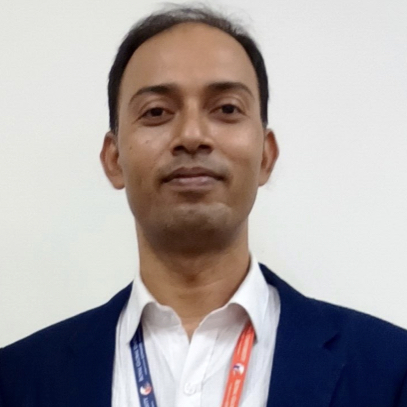 |
| 2 | Dipankar Das | 2005 | Deputy Manager, SBI Sorbhog |  |
| 3 | Ishan Kalita | 2016 | Asst. Section Officer, Janata Bhawan, Govt. of Assam, Dispur | 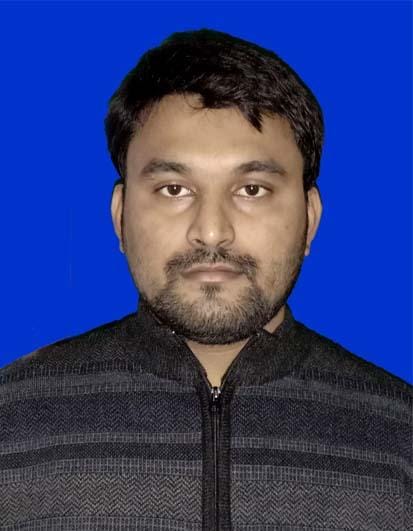 |
| 4 | Dhritiman Kakati | 2016 | Inspector of Statistics, Directore of Economics & Statistics, Assam |  |
| 5 | Dipankar Das | 2020 | PhD Research Scholar, Sikkim University |  |
| 6 | Saurav Kalita | 2015 | PhD Research Scholar, Rajib Gandhi University, Arunachal Pradesh | 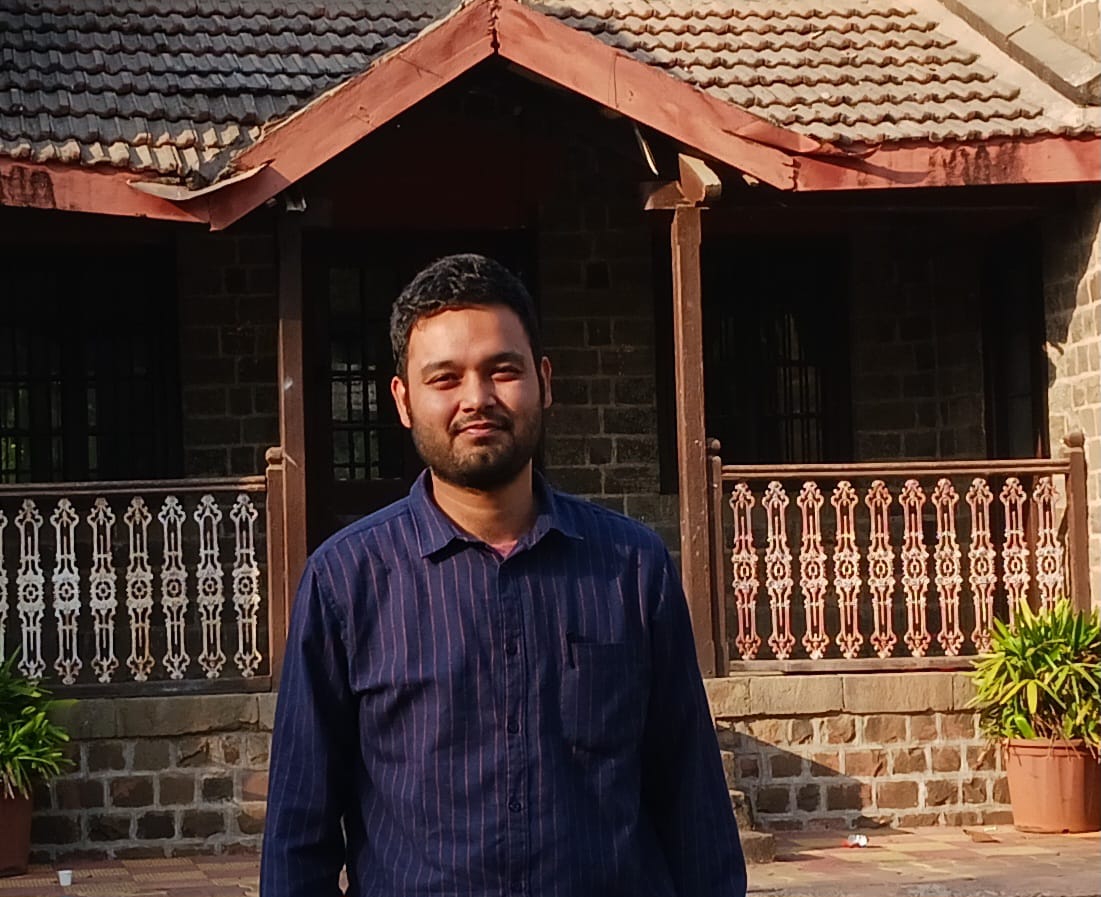 |
| 7 | Bulbul Hussain | 2015 | Advocate, Gauhati High Court | 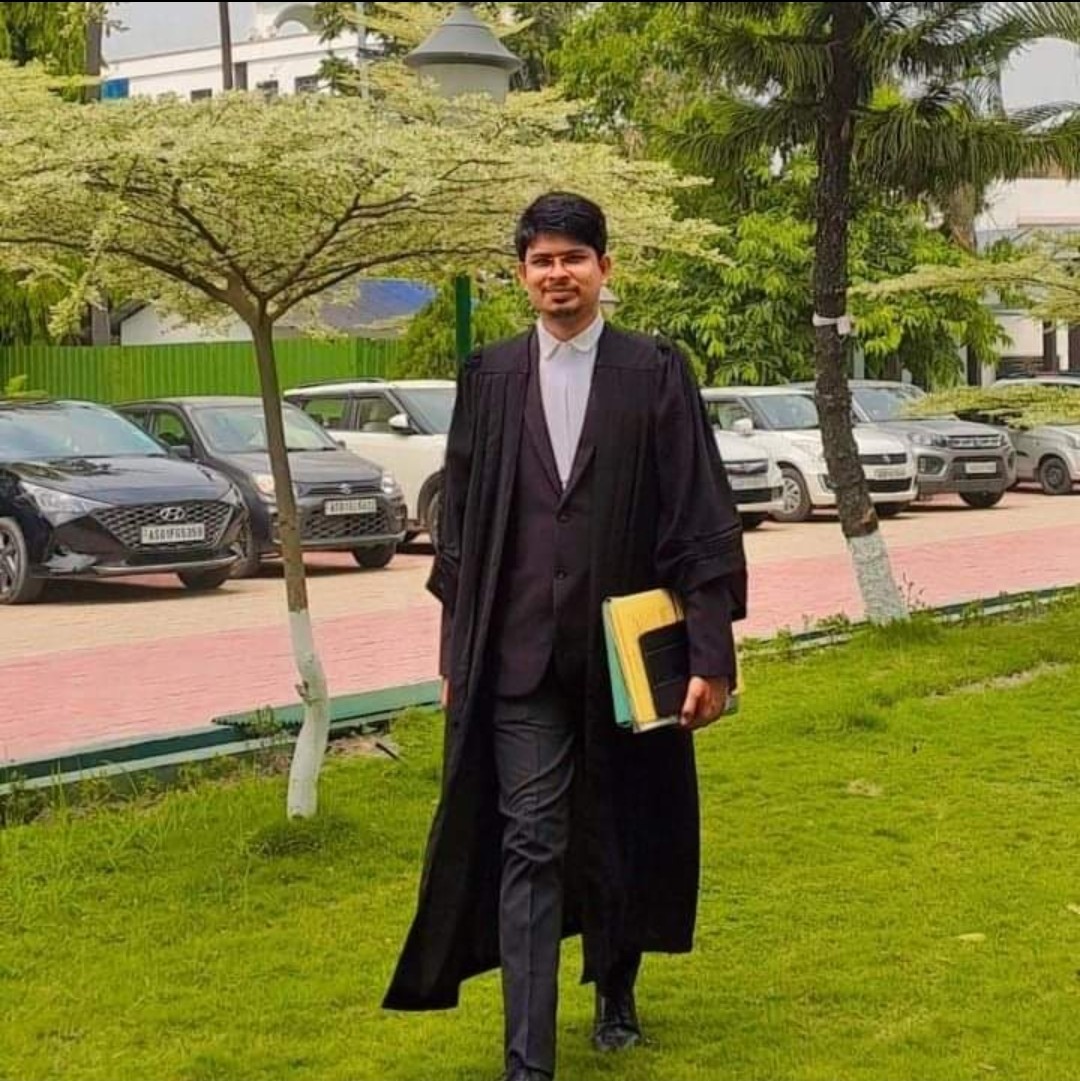 |
| 8 | Abu Daud Pathan | 2017 | PhD Research Scholar, NIT Silchar | 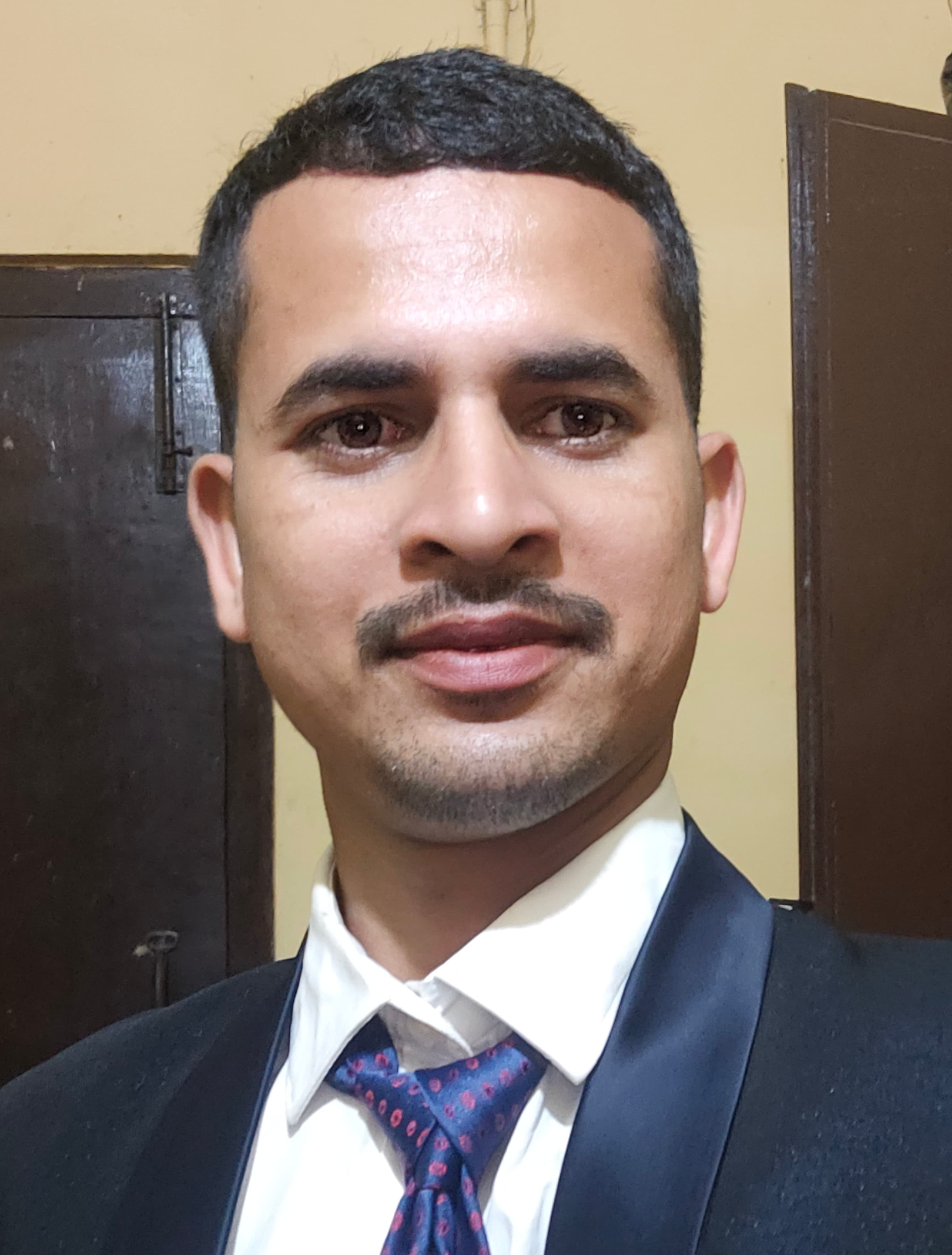 |
| 9 | Khanindra Kr. Nath | 1995 | Assistant Professor, G.L.C College | 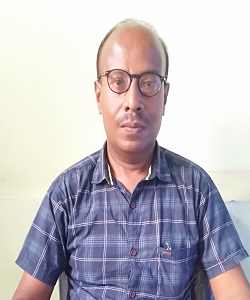 |
| 10 | Dr. Jaya Bishas Kunda | 1984 | Principal i/c G.L.C College | 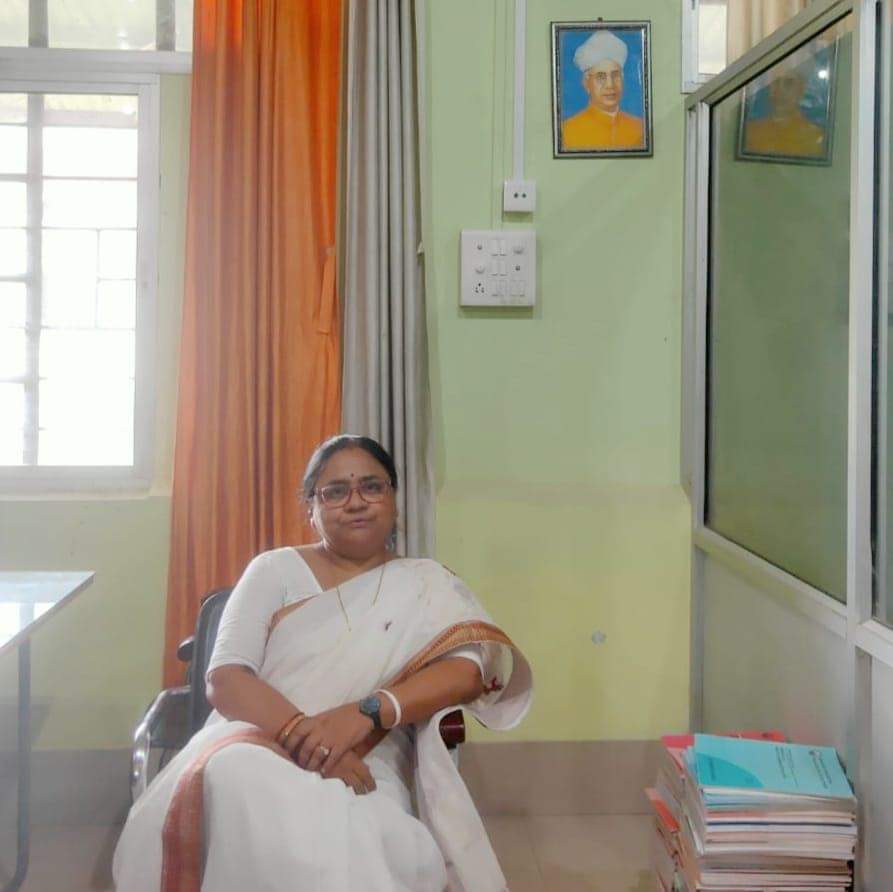 |
| 11 | Dr. Samiran Sarma | 1993 | Associate Professor, Bhawanipur Anchalik College |  |
| 12 | Dr. Bijoy Kumar Dey | 2014 | Assistant Professor, Lanka Mahavidyalaya | 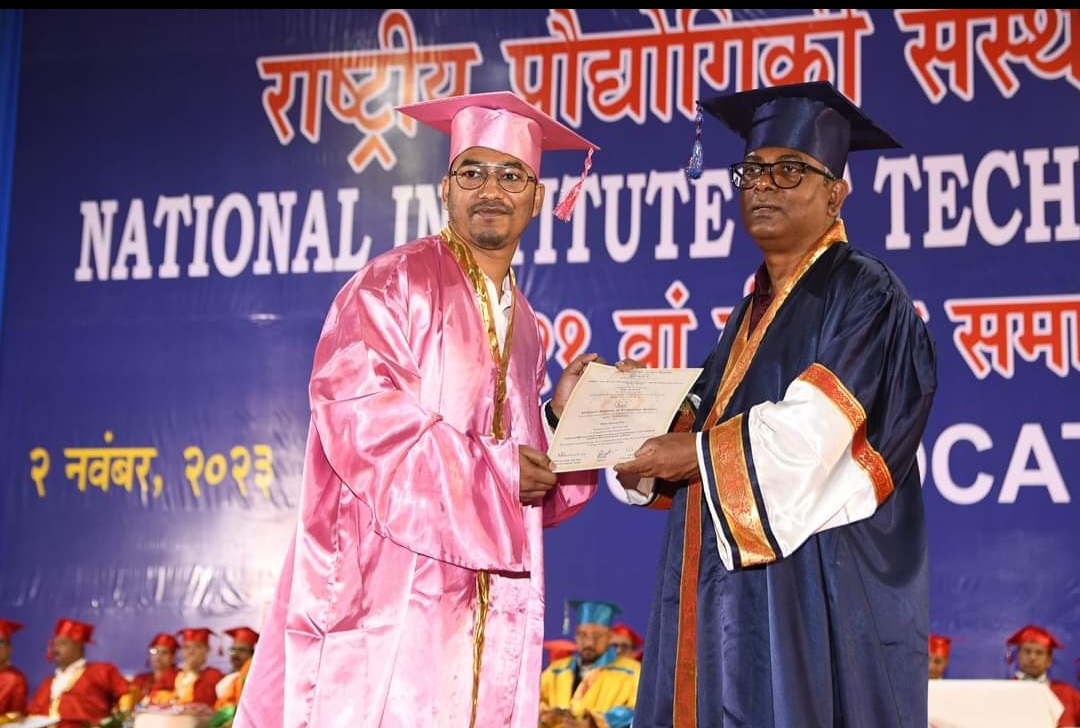 |
| 13 | Rupam Talukdar | 2013 | Assistant Professor, Tyagbir Hem Baruah College Jamugurihat, Sonitpur, Assam |  |
| 14 | Dr. Anamika Das | 2009 | Assistant Professor, Christ University Bangalore, Post Doctorate Research Associate | 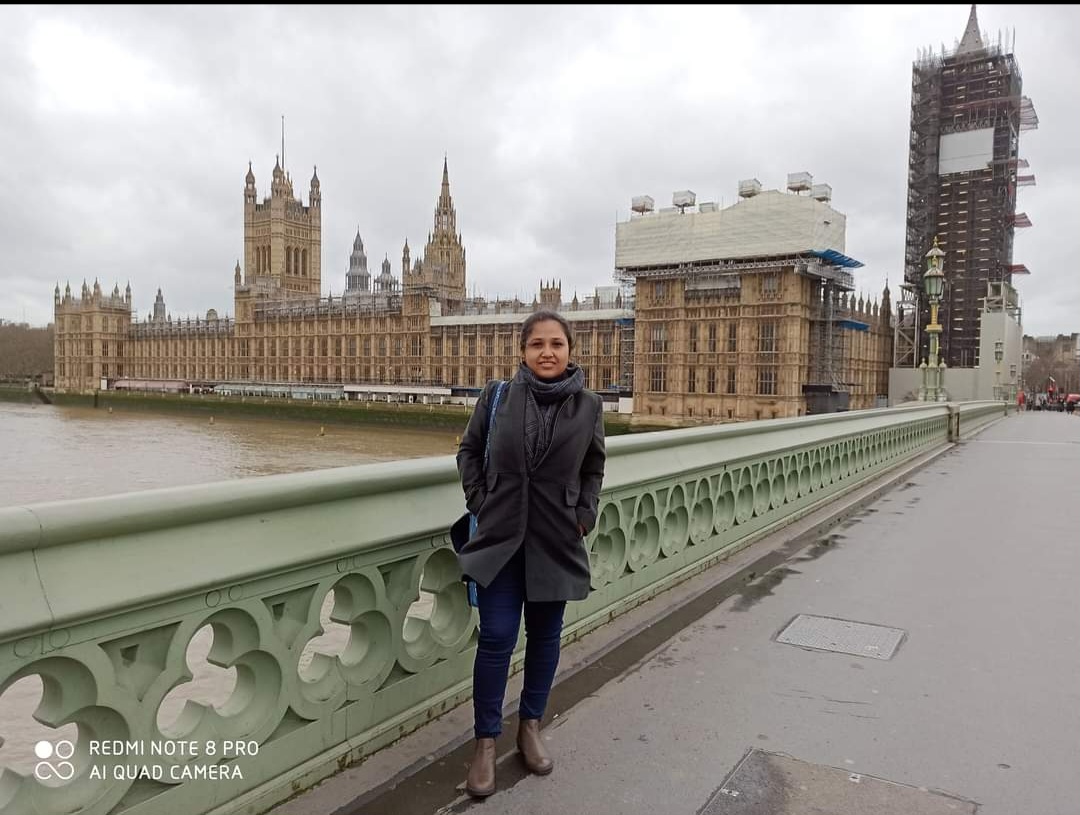 |
| Achievement | Date | View |
|---|